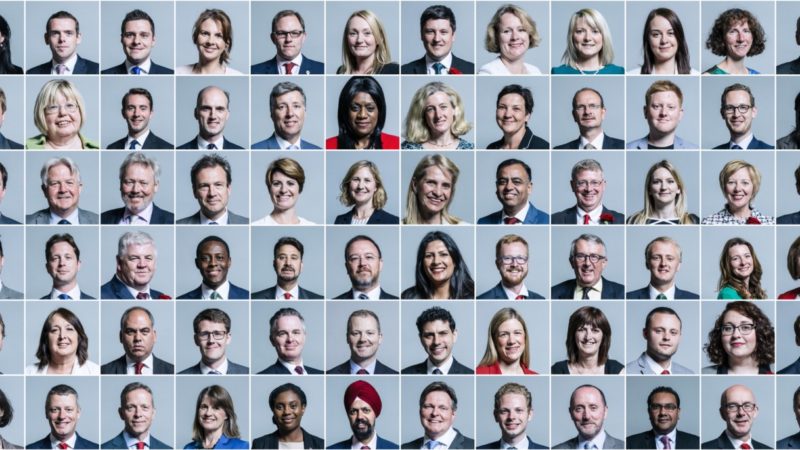"It is simply not acceptable that our voices are being stifled: Brexit is the most important political decision the UK will take for a generation, and all the evidence shows that women will be disproportionately affected."

Pic: While Parliament is much more diverse than it used to be, the same voices still appear to be dominating the debate.
New research from the Women for a People’s Vote campaign has shown just how much women continue to be underrepresented in the Brexit process.
Analysis of the 12 debates allotted to debate the Withdrawal Act since 4th December last year reveals that 72% of time (3,201 minutes) was dedicated to men’s voices – compared to 1,239 minutes for women. Men make up 68% of MPs, meaning they are slightly over-represented in Parliamentary debates.
And when the Prime Minister is taken out of the equation, women MPs spoke for just 26% of the time during key Brexit debates (18.6 out of 72 hours).
But the Brexit debate outside of Parliament is also being dominated by men’s voices.
For same period – 4th December 2018 to the 1st March 2019 – men dominated TV broadcast discussion of UK politics: 71% of guests on the BBC’s flagship Andrew Marr Show, and 60% of ITV’s Peston on Sunday guests were men. That compares to relative gender balance on Question Time, with 51% of panellists being women, according to analysis by Women for a People’s Vote.
Parliament’s Press Gallery remains dominated by men, with just three out of twenty political/deputy political editors on the daily papers being women.
There is only one woman in the negotiating team sent back and forth from Brussels, while there’s just one woman on the 44 person-member Leave Means Leave board. There are seven men called John.
Women for a People’s Vote argue a fresh referendum is ‘the only way to have women’s voices heard in the biggest decision of a generation’.
However, women were poorly represented in the last referendum campaign. Despite analysis showing that women will be hit hardest by the economic impact of Brexit, a Loughborough University study found that just 15% of individuals who appeared in 2016 campaign press coverage were women.
Caroline Criado Perez, writer and feminist activist said:
“Female representation in politics matters. Research from around the world going back decades shows that female politicians are more likely to promote and defend women’s rights. It is simply not acceptable that our voices are being stifled: Brexit is the most important political decision the UK will take for a generation, and all the evidence shows that women will be disproportionately affected, no matter what form it takes.
“I’ll be marching for a People’s Vote on 23 March because now we know the facts about Brexit, women’s voices must be heard.”
Rachael Maskell, MP for York Central says:
”During the 2016 Referendum the voices of women were absent in the national campaign, and yet the impact on women in the UK, across Europe and across the world will be diminished if the UK leaves the European Union.
“Given that 86% of cuts have fallen on women since the Government’s austerity programme in 2010, the evidence shows that the UK will be economically worse off. Reports from the Bank of England and Office for Budget Responsibility, highlights how women will experience further detriment on leaving the EU. It is time that the voice of women is heard in the debate.”
Watch the video released by the campaign to mark International Women’s Day:
Today is #InternationalWomensDay
— Women for a People's Vote (@women4PV) March 8, 2019
📅It's also 3 weeks till we are scheduled to leave the EU.
🧐What's the link?
📢Women's voices have been underrepresented in the #Brexit debate new study finds.
🗳️The only way to have our voices heard is a #PeoplesVote #PutItToThePeople pic.twitter.com/CShrRF7LDZ
Josiah Mortimer is Editor of Left Foot Forward. Follow him on Twitter.
To reach hundreds of thousands of new readers we need to grow our donor base substantially.
That's why in 2024, we are seeking to generate 150 additional regular donors to support Left Foot Forward's work.
We still need another 117 people to donate to hit the target. You can help. Donate today.



